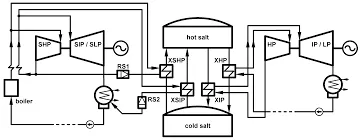high quality waste heat boiler for industry
High-Quality Waste Heat Boilers for Industry
In contemporary industrial settings, efficiency is paramount. As businesses strive to optimize their processes and reduce operational costs, the focus on sustainable practices is increasingly becoming a priority. One effective solution that has emerged is the utilization of high-quality waste heat boilers. These boilers not only help industries recuperate lost energy but also pave the way towards eco-friendly operations.
Understanding Waste Heat Recovery
Waste heat recovery involves capturing excess thermal energy produced as a byproduct of various industrial processes. This residual heat, if not harnessed, is typically released into the environment, contributing to energy wastage and environmental pollution. High-quality waste heat boilers are designed to capture this heat and convert it into useful forms of energy, such as steam or hot water, which can be used for heating or power generation within the facility.
Benefits of High-Quality Waste Heat Boilers
1. Energy Efficiency One of the primary advantages of high-quality waste heat boilers is their ability to significantly improve energy efficiency. Industries that utilize these systems can recover substantial amounts of wasted heat energy, reducing their reliance on external energy sources and cutting down on fuel consumption.
2. Cost Savings The reduction in energy consumption directly correlates with a decrease in energy costs. By maximizing heat recovery, companies can witness a considerable drop in their operational expenses. According to industry studies, facilities that have implemented waste heat recovery systems can reduce their energy bills by up to 30%.
3. Environmental Impact As the world moves towards greener practices, waste heat boilers align perfectly with sustainability initiatives. By recovering and reusing waste heat, industries can minimize their carbon footprint and contribute to environmental conservation. This not only helps in adhering to regulatory standards but also enhances corporate responsibility.
4. Flexibility and Versatility High-quality waste heat boilers can be designed to handle various waste heat sources, including exhaust gases from engines, kiln operations, and even chemical processes. This versatility makes them applicable across different industries, ranging from manufacturing and power generation to food processing and chemical production.
5. Increased Operational Reliability Modern waste heat boilers are built with advanced materials and technology that enhance their durability and reliability. High-quality construction not only ensures a longer lifespan but also minimizes maintenance needs, resulting in more stable operations.
high quality waste heat boiler for industry

Key Components and Features of High-Quality Waste Heat Boilers
To achieve optimal performance, high-quality waste heat boilers incorporate several advanced features
- Heat Exchangers These components play a crucial role in transferring heat from exhaust gases to water or other fluids, efficiently converting waste heat into usable energy.
- Control Systems Advanced monitoring and control systems allow for real-time assessment of performance, enabling operators to optimize operations and ensure safety.
- Material Quality High-grade materials resistant to corrosion and high temperatures are essential to ensure longevity and effectiveness in waste heat recovery.
- Modularity Many high-quality waste heat boilers are designed to be modular, allowing for easy scalability and adaptability to changing industrial needs.
Implementation Strategies
Adopting high-quality waste heat boilers requires careful planning and execution. Industries should begin by conducting comprehensive energy audits to identify potential waste heat sources. Collaborating with experienced engineering firms can help ensure that the selected boiler system is tailored to meet specific operational requirements. Additionally, training personnel and integrating the system with existing processes is crucial for maximizing efficiency.
Conclusion
High-quality waste heat boilers represent a significant opportunity for industries to enhance energy efficiency, reduce operating costs, and adopt environmentally sustainable practices. By investing in these systems, businesses can not only reclaim valuable energy but also position themselves as leaders in the transition towards a more sustainable industrial landscape. As global energy demands continue to rise, the implementation of effective waste heat recovery systems will play a central role in shaping the future of industrial operations.
-
Top Industrial Boiler Contractors Supplier & Factory Quality Products & ServicesNewsJun.10,2025
-
Panasonic Hot Water Boiler - Reliable & Energy Efficient Heating SolutionNewsJun.10,2025
-
Pennco Steam Boilers High-Efficiency & Durable SolutionsNewsJun.10,2025
-
Industrial Boiler & Mechanical Solutions Efficient Industrial Heating SystemsNewsJun.10,2025
-
Panasonic Hot Water Boiler - Energy-Efficient, Reliable Heat SolutionNewsJun.10,2025
-
Premium Power Plant Steam Boilers High Efficiency & ReliabilityNewsJun.09,2025

